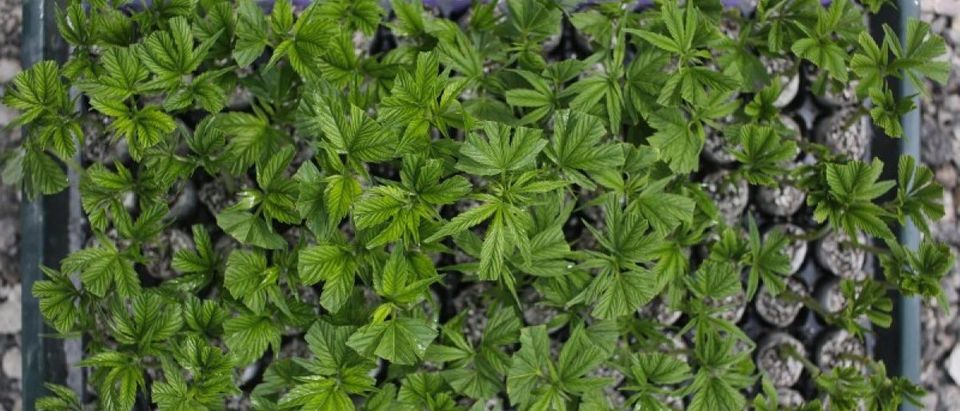States with medical marijuana programs are beginning to open access to the drug for people suffering from post-traumatic stress disorder, under mounting pressure from veterans groups advocating marijuana as an alternative to opioids.
“If you are a traumatized person, you will try anything,” Serge Chistov, financial partner to the Honest Marijuana Company eco-friendly cannabis growery, told The Daily Caller News Foundation. “If they give you access to an M-16 at the age of 18, I think you should be able to have access to weed.”
A growing chorus of veteran groups are petitioning the government to ease restrictions on federal marijuana policy. Many are unable to get relief from painkillers or traditional treatments allowed under current federal law, leaving them at the mercy of their particular state’s policy. GOP Gov. Chris Christie signed a bill last year allowing medical marijuana for the treatment of PTSD in New Jersey, which officials are currently working to implement in May. Of the 28 states with legal medical marijuana programs, 14 currently offer pot for treating PTSD, reports New Jersey Law Journal.
Christie said he was motivated to action after learning roughly 20 percent of veterans returning from the Iraq and Afghanistan suffer from PTSD. Those who do not live in a state that allows treatment are cut off from legal access, forcing veterans and other individuals to break the law and commit felonies just to find relief from their chronic pain.
“Medical marijuana can be very helpful, especially when treating chronic pain and anxiety,” Chistov told TheDCNF. “It saddens me to hear that of all people, Veterans are not allowed to receive marijuana treatment — even if it might help them more than conventional treatment options. In the long term, I believe that the trend towards state legalization and the strong voice of our nation will eventually impact federal regulations.”
It is currently a violation of the Department of Veterans Affairs (VA) policy to prescribe or even recommend marijuana to a patient, due to its status as a Schedule I drug alongside deadly narcotics. VA hospitals began weaning veterans off painkillers and limiting the number of prescriptions written for opioids last fall in the wake of spiking overdoses, but without access to medical marijuana many veterans will have limited options.
Texans For Responsible Marijuana Policy, a veterans group, recently launched an effort to legalize medical marijuana in their state to draw attention to the daily struggles facing so many veterans.
“The most evil thing in the world is a person who would knowingly allow their brother, sister, or neighbor to suffer,” Tom Lee, a veteran and marijuana activists in Arkansas, told THV 11 in March. “I’ve tried not to do that and I’ve tried to let everyone know the truth about this plant.”
Veterans suffering from PTSD are currently participating in the first clinical trial studying the efficacy of treatment with marijuana. Each participant will undergo treatment with marijuana over a 12-week period, with a required six-month follow-up. Researchers hope the results can give critical guidance to lawmakers in terms of future policy, specifically the treatment of veterans.
“Cannabis takes the amplitude of the pain signal and cuts it down by deflecting the pain and spreading it around,” Chistov told TheDCNF. “Opioids are simply temporarily blocking the transfer of any signal in between the receptors that are responsible for pain generation. The block temporarily wears off and then you need to take more to block it again.”
The study is expected to give enormous insight into the medical properties and uses of marijuana, a field with a small but growing body of research. Many health professionals in states that recently legalized marijuana are excited about the possibilities weed offers patients, particularly those who are treated primarily with addictive opioid medication.
All content created by the Daily Caller News Foundation, an independent and nonpartisan newswire service, is available without charge to any legitimate news publisher that can provide a large audience. All republished articles must include our logo, our reporter’s byline and their DCNF affiliation. For any questions about our guidelines or partnering with us, please contact licensing@dailycallernewsfoundation.org.


